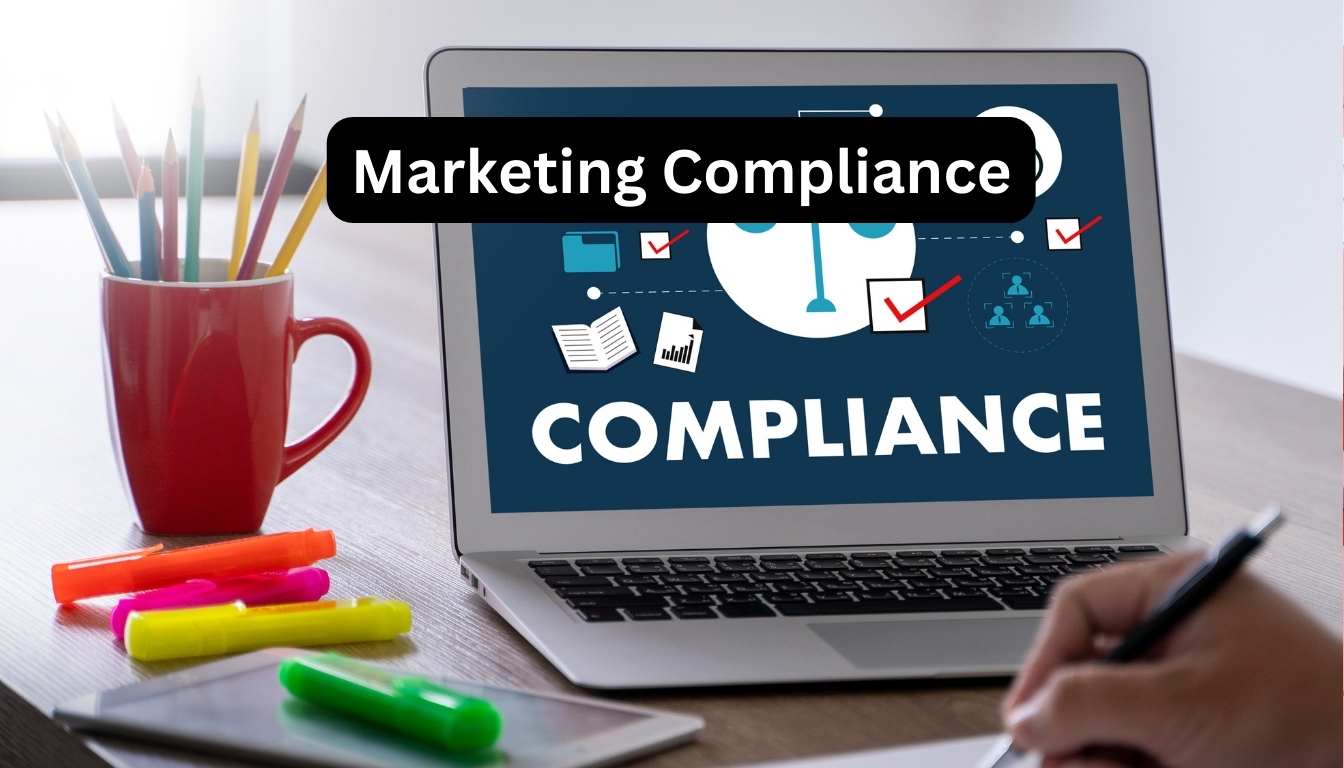Reputation marketing is a powerful strategy that uses your company’s reputation to market your business to new leads. By combining elements of brand marketing and reputation management, reputation marketing aims to acquire and amplify positive brand content. In today’s digital landscape, online reputation is the most influential marketing tool. Customers heavily rely on reviews and testimonials to guide their buying decisions and consider them more trustworthy than sales copy. Implementing effective reputation marketing techniques can improve brand awareness, reduce customer acquisition costs, and drive increased revenues.
If you want to learn more about the importance of reputation management and how to build your online reputation, continue reading.
Key Takeaways:
- Reputation marketing combines brand marketing and reputation management to acquire and amplify positive brand content.
- Online reputation is the most influential marketing tool.
- Customers rely on reviews and testimonials to make buying decisions and consider them more credible than sales copy.
- Reputation marketing improves brand awareness, reduces customer acquisition costs, and increases revenues.
- Implementing effective reputation marketing techniques can help businesses build trust and attract more customers.
Why Reputation Marketing Matters
Reputation marketing is essential for business success. In today’s digital age, customers heavily rely on online reviews and recommendations to make informed decisions about products and services. It has become increasingly crucial for businesses to actively manage their reputation and utilize effective reputation marketing strategies. This section will explore the benefits of reputation marketing and provide insights into effective reputation marketing strategies.
The Benefits of Reputation Marketing
Implementing reputation marketing strategies can have several benefits for businesses:
- Improved Brand Awareness: By actively managing and promoting a positive reputation, businesses can increase their visibility and exposure in the marketplace. Positive reviews and recommendations from satisfied customers can help enhance brand awareness among potential customers.
- Decreased Customer Acquisition Costs: A strong reputation can attract new customers organically, reducing the need for additional marketing efforts and lowering customer acquisition costs. Customers are more likely to trust and engage with businesses that have a positive reputation.
- Increased Revenues: Positive reviews and recommendations can significantly impact consumers’ purchasing decisions. Businesses with a strong reputation are more likely to attract new customers, retain existing customers, and ultimately increase their revenues.
Reputation Marketing Strategies
Implementing effective reputation marketing strategies is crucial for businesses to build a positive brand reputation and attract more customers. Here are some strategies to consider:
- Encourage and Respond to Customer Reviews: Actively encourage satisfied customers to leave online reviews and respond promptly and professionally to all customer feedback, both positive and negative. This demonstrates transparency and a commitment to customer satisfaction.
- Showcase Positive Feedback: Incorporate positive customer feedback in marketing materials, such as testimonials on the company website and social media platforms. This helps build trust and credibility with potential customers.
- Engage with Customers on Social Media: Establish a strong social media presence and engage with customers regularly. Respond to comments, address queries, and encourage positive interactions to foster positive brand perception.
- Utilize Influencer Marketing: Collaborate with social media influencers and industry experts to promote your brand and enhance your reputation. Engaging with influencers can help expand your reach and attract new customers.
By implementing these reputation marketing strategies, businesses can proactively manage their reputation and cultivate a positive brand image that resonates with customers.
| Benefits of Reputation Marketing | Reputation Marketing Strategies |
|---|---|
| Improved Brand Awareness | Encourage and Respond to Customer Reviews |
| Decreased Customer Acquisition Costs | Showcase Positive Feedback |
| Increased Revenues | Engage with Customers on Social Media |
| Utilize Influencer Marketing |
The True Definition of Reputation Marketing
Reputation marketing is the practice of collecting and promoting positive user-generated content to enhance brand reputation. Unlike traditional brand marketing, reputation marketing relies on third-party and user-generated content such as customer reviews, testimonials, online ratings, community awards, and social media mentions. The goal of reputation marketing is to proactively promote positive reviews and mentions of the company, rather than just managing its reputation.
To effectively implement reputation marketing strategies, businesses can utilize various reputation marketing tools. These tools help monitor and manage the online reputation of the brand, ensuring that positive customer feedback is highlighted and amplified. They provide valuable insights into customer sentiment, allowing businesses to make informed decisions to enhance their brand reputation.
Enhancing Brand Reputation with Reputation Marketing Tools
Enhancing brand reputation is crucial in today’s digital landscape. Reputation marketing tools play a vital role in this process by providing businesses with the necessary tools and resources to monitor, manage, and enhance their online reputation. By leveraging these tools, businesses can:
- Monitor online reviews, testimonials, and ratings to gauge customer satisfaction levels and identify areas for improvement.
- Respond promptly to customer feedback, demonstrating a commitment to customer satisfaction and resolving any issues that may arise.
- Amplify positive customer experiences by featuring testimonials and reviews on their website, social media platforms, and other marketing channels.
- Engage with customers on social media, fostering a positive brand image and building strong relationships.
- Gather valuable insights and data on customer preferences, enabling businesses to tailor their products and services to meet customer needs effectively.
By utilizing reputation marketing tools, businesses can strengthen their brand reputation, build trust with customers, attract new leads, and ultimately enhance their overall marketing efforts. These tools offer valuable insights and functionalities that enable businesses to navigate the ever-changing digital landscape and stay ahead of the competition.
The Benefits of Reputation Marketing
Reputation marketing offers several benefits to businesses. It is a powerful tool that can enhance brand awareness, decrease customer acquisition costs, and increase revenues. By harnessing positive customer feedback and leveraging the company’s reputation on social media platforms, businesses can significantly improve their marketing efforts and achieve greater success.
Implementing effective reputation marketing strategies can have a profound impact on various aspects of a business. Let’s explore some top reputation marketing tips that can help businesses maximize their reputation marketing efforts:
- Regularly monitor and manage your brand reputation: Monitoring your online reputation allows you to stay informed about what customers are saying about your business. By promptly addressing any negative feedback or resolving customer issues, you can maintain a positive brand image and establish trust with your audience.
- Have a crisis communications plan in place: It’s essential to be prepared for any potential reputation crises. Develop a well-defined crisis communication plan that outlines how your business will respond to negative situations. This will help you handle issues efficiently, minimize the impact on your reputation, and maintain the trust of your customers.
- Identify and activate brand promoters: Your most satisfied customers can become powerful brand promoters. Identify these individuals and encourage them to share their positive experiences with your business. This can be done through testimonials, case studies, or even by offering incentives for referrals.
- Prevent negative feedback: Proactively addressing potential issues can help you prevent negative feedback from occurring in the first place. Prioritize customer satisfaction, offer exceptional service, and actively seek feedback to ensure that your customers are consistently satisfied with their experiences.
Implementing these top reputation marketing tips can drive search engine performance, enhance your social media strategy, and boost consumer engagement levels. By actively managing and promoting your brand’s reputation, you can attract more customers, increase sales, and ultimately achieve long-term business growth.
Reputation Marketing for Business Success
Reputation marketing is crucial for business success in today’s world. As consumers actively seek information from various sources before making purchasing decisions, online reviews and ratings have become paramount in shaping consumer perception and trust in a brand.
Businesses can leverage the power of online reviews and ratings through reputation marketing strategies to build trust, attract customers, and enhance their brand reputation. Let’s explore some reputation marketing examples:
Sharing Positive Reviews on the Company’s Website
Showcasing positive reviews on the company’s website provides social proof and instills confidence in potential customers. By prominently displaying testimonials and ratings, businesses can highlight the positive experiences of previous customers, reinforcing their reputation for excellence.
Using Customer Feedback in Advertisements
Integrating customer feedback into advertisements adds credibility and authenticity to marketing campaigns. By featuring snippets of positive reviews and ratings in promotional materials, businesses can effectively communicate the satisfaction of their customers, encouraging new prospects to choose their products or services.
Leveraging Third-Party Review Websites
Collaborating with reputable third-party review websites can significantly boost a company’s reputation. By actively engaging with these platforms and encouraging customers to leave reviews, businesses can harness the power of unbiased, user-generated content to further strengthen their brand image and attract new customers.
Reputation marketing not only helps businesses build trust with their audience but also establishes a competitive edge in the market. By leveraging the influence of positive online reviews and ratings, companies can enhance their brand reputation, amplify their marketing efforts, and drive business success.
| Benefits of Reputation Marketing | Reputation Marketing Examples |
|---|---|
|
|
The Importance of Reputation Management
Reputation management plays a crucial role in maintaining a positive brand reputation in today’s digital landscape. It involves monitoring and managing a company’s online reputation, actively seeking referrals, and promoting customer reviews and recommendations in marketing efforts. By implementing effective reputation management strategies, businesses can safeguard their brand image, build credibility, and foster trust among their target audience.
The Power of Monitoring Brand Reputation
Regularly monitoring brand reputation helps businesses stay informed about customer perceptions and identify potential issues. By listening to customer feedback and monitoring online reviews and social media comments, companies can uncover valuable insights that can be used to improve products, services, and customer experiences. Monitoring brand reputation allows businesses to proactively address customer complaints, resolve any issues promptly, and mitigate potential damage to their brand’s image.
Furthermore, monitoring brand reputation enables businesses to stay ahead of potential crises by identifying emerging trends, managing customer expectations, and engaging with customers in a timely and effective manner. By embracing a proactive approach to reputation management, businesses can turn potential threats into opportunities and protect their brand reputation.
Effective Reputation Management Strategies
Implementing reputation management strategies is key to successfully managing and improving brand reputation. Here are some effective strategies:
- Monitor online reviews and social media comments: Regularly monitor online review platforms, social media channels, and industry-specific forums to stay updated on customer feedback and sentiments.
- Respond to customer feedback: Address customer feedback, both positive and negative, in a timely and personalized manner. Responding promptly and professionally to customer concerns shows that the business values its customers and is committed to resolving issues.
- Nurture digital channels: Actively engage with customers on digital platforms, such as social media, blogs, and forums, by responding to comments, sharing valuable content, and participating in relevant discussions.
- Encourage customer reviews and referrals: Proactively seek customer reviews and referrals by offering incentives, creating a seamless review process, and requesting feedback from satisfied customers.
- Promote positive customer experiences: Showcase positive customer experiences through testimonials, case studies, and success stories. Highlighting these experiences in marketing efforts can help build trust and credibility.
By implementing these reputation management strategies, businesses can actively shape their brand’s online reputation and foster positive relationships with customers.
| Benefits of Reputation Management |
|---|
| 1. Enhanced brand credibility and trust |
| 2. Improved customer satisfaction and loyalty |
| 3. Increased customer acquisition and retention |
| 4. Mitigated risks and potential crises |
| 5. Differentiated from competitors |
Reputation management is an integral part of building a successful and reputable brand. By prioritizing the monitoring of brand reputation and implementing effective reputation management strategies, businesses can maintain a positive brand image, attract more customers, and achieve long-term success in the increasingly competitive digital landscape.
Build Your Online Reputation
Building a strong online reputation is crucial for business success. In today’s digital age, customers heavily rely on online information and reviews to make buying decisions. Therefore, businesses must implement effective strategies for building a positive online reputation. This section will discuss key strategies and the benefits of maintaining a positive online presence.
Strategies for Building Online Reputation
To build a strong online reputation, businesses should consider the following strategies:
- Provide exceptional customer service: Excellent customer service can leave a lasting impression on customers and encourage them to leave positive reviews.
- Actively seek customer reviews and feedback: Encourage satisfied customers to share their experiences on review platforms and social media.
- Engage with customers on social media: Interact with customers, respond to their comments and inquiries, and showcase your brand’s personality.
- Maintain a positive online presence: Regularly update your website and social media accounts with valuable content, promotions, and announcements.
Benefits of Positive Online Reputation
A positive online reputation can bring numerous benefits to your business:
- Increased brand credibility: A positive online reputation enhances your brand’s credibility and fosters trust among customers.
- Improved customer trust: When potential customers see positive reviews and recommendations, they are more likely to trust your business and choose your products or services.
- Higher customer loyalty: Satisfied customers are more likely to remain loyal and recommend your business to others.
- Increased sales: A positive online reputation attracts more customers, resulting in higher sales and revenue.
- Enhanced brand image: A positive online reputation helps shape a positive perception of your brand, making it more attractive to potential customers.
- Competitive advantage in the market: With a strong online reputation, you stand out from competitors and gain an edge in the market.
By implementing effective strategies for building online reputation and reaping the benefits of a positive online presence, businesses can establish themselves as trustworthy and successful entities in their respective industries.
Reputation Marketing for Local Domination
Reputation marketing is a powerful tool for local businesses seeking to dominate their region. By focusing on building a strong local reputation, businesses can attract more local customers and outperform competitors. Implementing reputation marketing strategies tailored to target local customers offers a unique advantage in establishing trust, attracting a broader customer base, and ultimately increasing sales within the local market.
To effectively leverage reputation marketing for local businesses, actively managing online reviews is crucial. Encouraging satisfied customers to leave positive feedback and promptly responding to customer feedback demonstrates a commitment to customer satisfaction and fosters a positive perception of the brand. By showcasing positive customer experiences through engaging testimonials and reviews, businesses can enhance their local reputation and attract new customers.
Targeting local customers through reputation marketing strategies is key to maximizing the impact of marketing efforts. This involves utilizing localized language, highlighting community involvement, and showcasing the unique aspects of the local market. By tailoring marketing messages and content to resonate with the local audience, businesses can establish themselves as a trusted and preferred choice among local customers.
To illustrate the effectiveness of reputation marketing for local domination, consider the following example:
| Local Business | Average Rating | Number of Reviews |
|---|---|---|
| XYZ Cafe | 4.9 | 250+ |
| ABC Bistro | 3.5 | 40+ |
| 123 Grill | 4.7 | 100+ |
In this example, XYZ Cafe has established a strong local reputation based on its high average rating and a large number of positive reviews. As a result, XYZ Cafe attracts a significant volume of local customers compared to its competitors, ABC Bistro and 123 Grill, who have lower ratings and fewer reviews. This demonstrates the impact reputation marketing can have on local businesses, as it can significantly influence customer perceptions and drive customer decisions.
Overall, reputation marketing for local businesses plays a pivotal role in dominating the local market. With a focus on managing online reviews, responding to customer feedback, and targeting local customers, businesses can establish a strong local reputation, build trust, and attract more customers in their local market.
Reputation Marketing: The Future of Marketing
As consumer behavior and expectations continue to evolve, reputation marketing is poised to become the driving force behind customer acquisition and loyalty. With customers relying on online reviews and recommendations, businesses must recognize the importance of reputation marketing in shaping consumer perception and trust.
To stay ahead in the competitive landscape, companies need to continually adapt and embrace evolving strategies for reputation marketing. One such strategy involves leveraging artificial intelligence and machine learning technologies to analyze and manage reputation data effectively. These advanced technologies enable businesses to identify trends, monitor sentiment, and proactively address potential reputation issues.
Another key aspect of evolving reputation marketing strategies is the implementation of personalized marketing approaches based on individual customer preferences. By tailoring marketing messages and experiences to specific customers, businesses can enhance customer satisfaction and build long-lasting relationships.
Furthermore, social media influencers have emerged as powerful assets for enhancing brand reputation. Collaborating with influencers who align with the brand values can significantly impact brand visibility and credibility, reaching new audiences and fostering customer trust.
In summary, the future of marketing lies in reputation marketing. By embracing evolving strategies, businesses can harness the power of artificial intelligence, personalize marketing approaches, and leverage social media influencers to enhance their brand reputation and gain a competitive edge in the market.
Conclusion
Reputation marketing is crucial for business success in today’s digital landscape. With the power of positive online reputation, businesses can attract more customers, increase sales, and cement their brand credibility. Actively managing and promoting reputation is key to building trust with customers, setting oneself apart from competitors, and achieving long-term growth.
The key takeaways from this guide underscore the importance of reputation marketing. Implementing effective strategies for building and managing online reputation is essential for businesses aiming to thrive in the digital era. Furthermore, the future evolution of reputation marketing will continue to shape the marketing landscape, with opportunities to leverage advanced technologies, personalized approaches, and influential individuals to further enhance brand reputation.
As businesses embrace the importance of reputation marketing and adapt to its evolving strategies, they position themselves for success in a competitive market. By prioritizing reputation marketing, companies can establish a strong foundation, cultivate customer trust, and unlock new opportunities for growth in the digital age.



